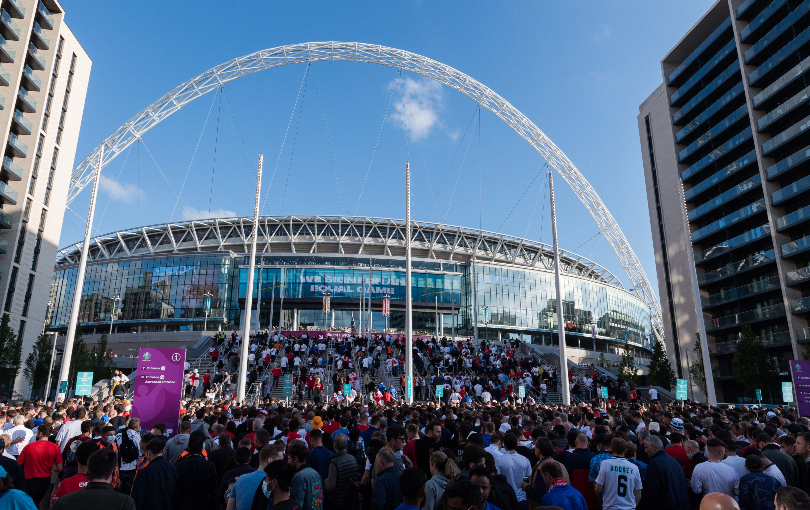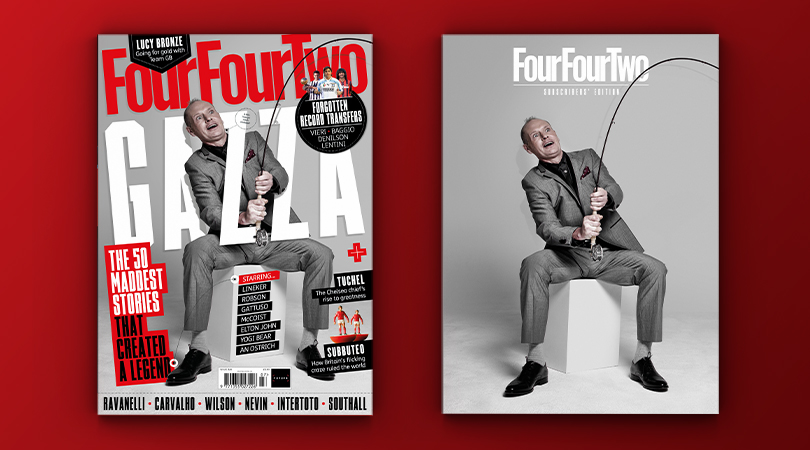Euro 2020's multiple venue format must never be repeated – despite the excellent football
The football has been sensational this summer, but that is in spite of multi-nation hosting

Michel Platini lost his job in 2015 and one of his records in 2021. His status as the record scorer in the history of European Championships is gone, taken by a predatory Cristiano Ronaldo. His position as the most powerful man in European football went in 2015 when he went from being the president of Uefa to being banned from football.
The legacy of the hero of 1984 has changed but this summer has been part of it. Euro 2020 had been his brainwave, a “zany idea but a good idea”, according to the Frenchman in 2012. A capacity to have terrible ideas, whether forged by greed, stupidity or arrogance, appears a prerequisite for a leading role in sports administration, Platini was Sepp Blatter’s protégé and the disgraced former Fifa president was a fount of terrible schemes. Platini showed a similar flair: staging Euro 2020 in a dozen cities was never a good idea. Taking anything to Baku is, likewise, always an awful idea, even without the geographical considerations when a tournament is also based in London, Glasgow, Copenhagen, Amsterdam and Seville, none within easy commuting distance of Azerbaijan.

Euro 2016, played entirely in France, was a better idea; geographically closer, more coherent, more feasible, more fair to its various participants. And it was also a worse competition. It had a mere 108 goals, 32 fewer than Euro 2020 has already produced. Its average of 2.12 per game was depressingly low. It had 13 1-0 wins and, apart from Hungary 3-3 Portugal, very few classic encounters. Portugal, Wales and Iceland had memories to savour, Italy and Germany conjured a ludicrous penalty shootout and Antoine Griezmann, Aaron Ramsey and Renato Sanches had terrific tournaments, but mostly it was forgettable fare.
Compare and contrast with Euro 2020. There have been far more brilliant matches – Portugal 2-4 Germany, Germany 2-2 Hungary, Portugal 2-2 France, Belgium 1-2 Italy, Italy 1-1 Spain and, on arguably the greatest day in European Championships history, both France 3-3 Switzerland and Spain 5-3 Croatia. There have arguably been more fine teams and outstanding individuals, a suitable proportion of shocks and underdog stories, a number of high-class goals and an absurd selection of own goals.
None of the reasons for Euro 2020’s excellence – with the possible exception of the largely impressive officiating – is attributable to UEFA. The widespread enjoyment of it may reflect the wait – three years since the previous major tournament had sated appetites – and the added atmosphere that even semi-full grounds have brought after 15 months of largely deserted stadia. It offered a semblance of normality, of what we have lost, from a vanity project.
The coronavirus pandemic may have made Euro 2020 more welcome. It also helped camouflage the ridiculousness of staging it in 11 cities (eventually, given Dublin’s withdrawal); for those unable to go anywhere, perhaps it mattered less where games were held. Even if the logistical difficulties of travelling between countries with different quarantine regulations have been highlighted, many have accepted and understood the lack of away supporters. In any case, Covid meant it would have been impossible for thousands of fans from each of the other 23 competing countries to converge on one host nation.
But that, actually, is part of what tournaments should be about. The fragmented nature of the fixture list has meant Euro 2020 has not been played everywhere as much as nowhere. Was it really in Spain when its only games were in Seville? Or Germany when it was just Munich? Or even Romania, which it has never staged a major tournament, if there was nothing outside Bucharest?
Get FourFourTwo Newsletter
The best features, fun and footballing quizzes, straight to your inbox every week.
It is obvious the five major western European countries have advantages in terms of population, infrastructure and stadia. But they need not be the only hosts, providing there is the logic a proper tournament requires. Joint bids should be encouraged from neighbouring countries; the farce of Euro 2020’s many random venues should not be repeated.
And yet Euro 2020 will go down as the best so far with 24 teams, perhaps the finest European Championships since 2008; maybe, with a good final, even since 2000, the finest 16-team tournament. But it is an enduring theme that the excellence of action can often camouflage the failings of the sporting administrators and, time and again, the players offer evidence to support the case. Euro 2020 has been a nonsensical idea saved by terrific football. Platini’s folly has become a footballing success, but in spite of him, not because of him.
Subscribe to FourFourTwo today and get a FREE England Euro 96 shirt!
READ NEXT
FOR YOUR HOME Euro 2020 wall chart: Download free with full schedule, fixtures and dates
NEWS England make history as Gareth Southgate celebrates ‘special’ night
RICHARD JOLLY Can England become the new Germany at major tournaments?
Richard Jolly also writes for the National, the Guardian, the Observer, the Straits Times, the Independent, Sporting Life, Football 365 and the Blizzard. He has written for the FourFourTwo website since 2018 and for the magazine in the 1990s and the 2020s, but not in between. He has covered 1500+ games and remembers a disturbing number of the 0-0 draws.

